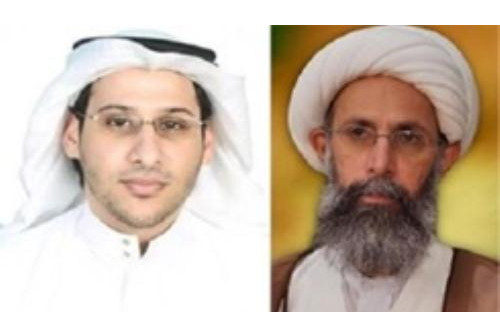On 12 June, Waleed Abu al-Khair ended his five-day hunger strike. He initiated his hunger strike to protest ill-treatment by the administration of the Thahban prison in Jeddah. Prison officials refused to provide him with the medical care he needs for diabetes and intestinal complications, and prevented him from accessing any reading material. He ended his strike after prison management partially met his demands, allowing him to visit the hospital, access the prison library, and take books to his cell.
Waleed is a prominent human rights activist and lawyer who has represented many victims of human rights violations. He also founded an independent human rights organization, the Monitor of Human Rights in Saudi Arabia, in 2008.
Saudi authorities soon began to target Waleed as a result of his human rights activities. In 2009, they banned him from representing specific defendants in court. A year later, security officials interrogated him, kept him under surveillance, and banned him from travelling. Finally, in October 2013, authorities arrested him for holding a “diwanniya,” an informal gathering, to discuss human rights issues and reform. They sentenced him to three months in prison for “ridiculing” or “offending” the Saudi judiciary and harming the image of the state.
On 13 January 2014, Saudi Arabia’s Specialized Criminal Court (SCC) sentenced Waleed to 15-years in prison under the kingdom’s expansive anti-terrorism legislation. The SCC convicted him of “making international organizations hostile to the kingdom,” “publicly slandering the judiciary,” and “founding an unlicensed organization.” The SCC also placed him under a 15-year travel ban, and levied a fine of 200,000 Saudi riyals.
The government’s decision to prosecute Waleed for his activism is part of a larger pattern of suppression in Saudi Arabia, one marked by the authorities’ use of broad anti-terror laws to punish non-violent dissent. On 2 January 2016, for example, Saudi officials executed Sheikh Nimr Baqir al-Nimr, a peaceful reformist who espoused non-violent criticism of the government. He championed equality for all Saudi citizens and vocally supported anti-government protests in Saudi Arabia’s Eastern Province as well as the rest of the country.
Saudi authorities repeatedly harassed Sheikh Nimr due to his popularity as a reformist and for the content of his sermons. By January 2010, Saudi authorities had placed him under house arrest. Security officials violently arrested Sheikh Nimr in 2012 after he delivered a fiery speech the previous year, and tried him in the SCC. In October 2014, the court convicted him of terrorism-related offenses that included “breaking allegiance to the ruler” and “inciting sectarian strife.”
Waleed and Sheikh Nimr’s cases are both clear examples of Saudi Arabia’s ongoing campaign against outspoken dissidents and activists, as well as the kingdom’s criminalization of freedom of expression and association. In both cases, the government harassed the men prior to arresting them, subjecting them to house arrest, frequent interrogation, or surveillance. In efforts to silence them, the government used the SCC to sentence Waleed and Sheikh Nimr under anti-terrorism charges, despite both men’s public commitment to non-violence. Moreover, the kingdom’s prosecution of Waleed and Sheikh Nimr – for merely exercising their rights to free expression and association – conflicts with international human rights norms and Saudi Arabia’s international human rights obligations.
Tyler Pry is the Sheikh Nimr al-Nimr Congressional Advocacy Fellow at ADHRB





